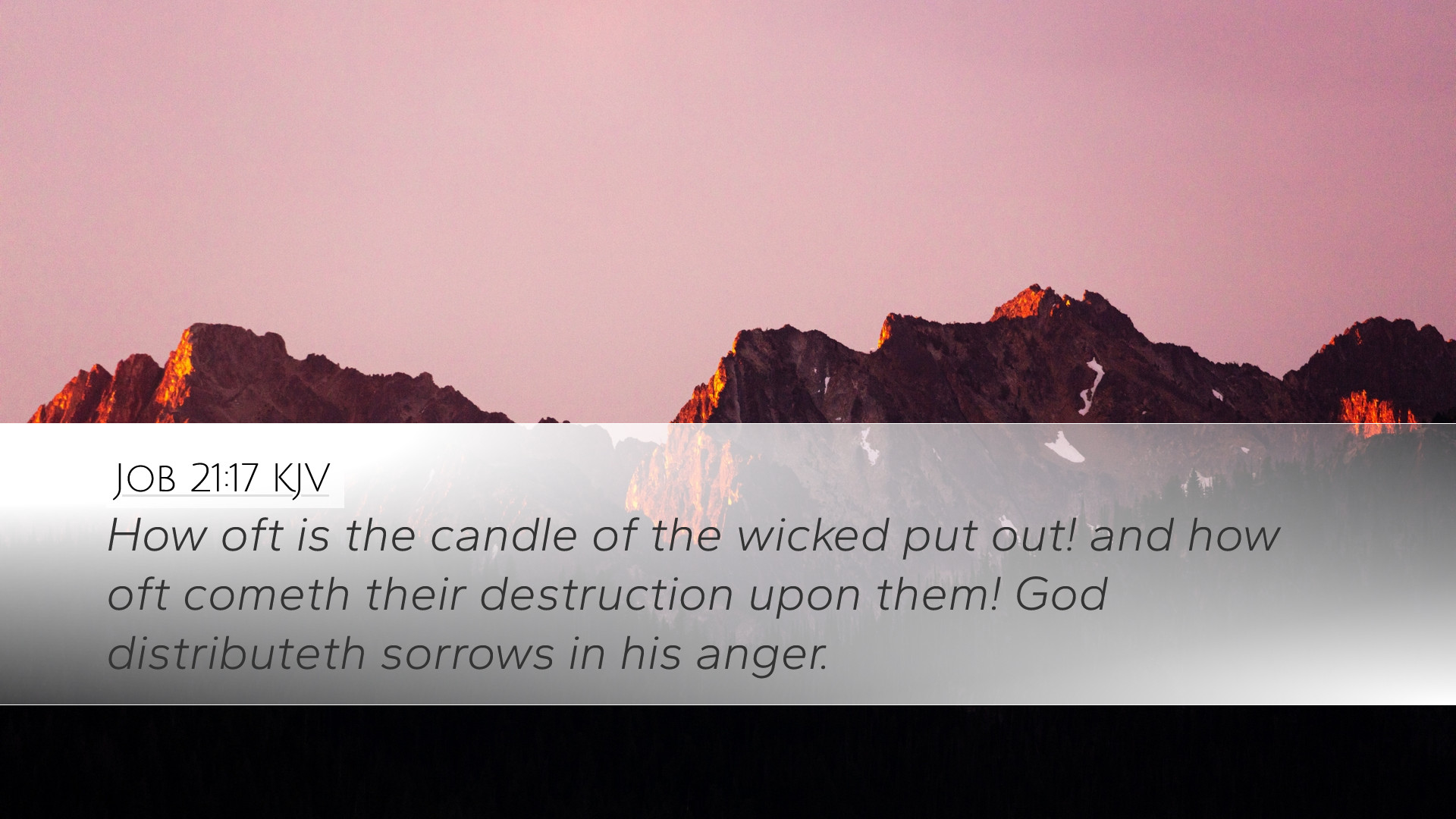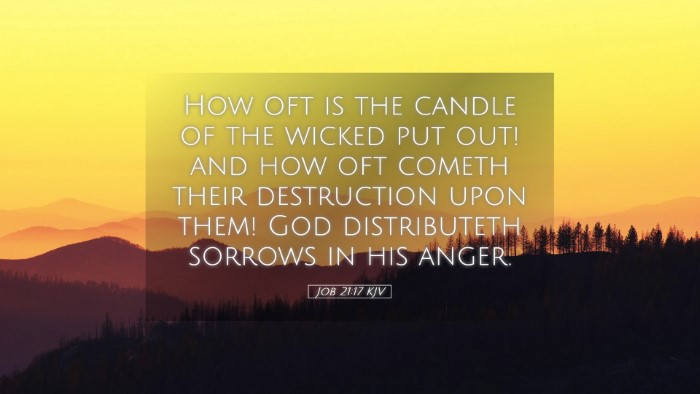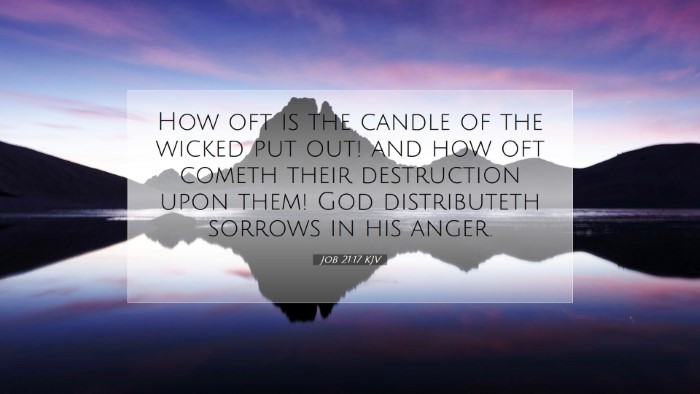Commentary on Job 21:17
Job 21:17 states, "How oft is the candle of the wicked put out? And how oft cometh their destruction upon them? God distributeth sorrows in his anger." This verse encapsulates a critical moment in the discourse of Job, where he challenges the conventional wisdom regarding the fate of the wicked. Below, we present a synthesis of commentaries from esteemed theologians and biblical scholars, including insights from Matthew Henry, Albert Barnes, and Adam Clarke.
Understanding the Context
The Book of Job addresses the profound questions of suffering, righteousness, and divine justice. Job, who has been afflicted with immense suffering, confronts his friends who insist that suffering is a direct consequence of sin. In Job 21, he counters their arguments and presents a case for the apparent prosperity of the wicked. This opening verse of the chapter serves as a poignant rhetorical question that underlines Job’s skepticism toward traditional retribution theology.
The Candle of the Wicked
Henry notes that the "candle" symbolizes life and prosperity. In biblical literature, light often represents goodness or divine favor, while darkness signifies evil or misfortune. Here, Job emphasizes that the life of the wicked can appear bright and prosperous, challenging the belief that living righteously guarantees success. He questions why the “candle of the wicked” remains lit while the righteous suffer.
- Matthew Henry elaborates that many observe the success of the wicked and grow disheartened, believing pain and sorrow should only belong to the ungodly. However, he argues that God’s justice might not manifest immediately.
- Albert Barnes interprets this metaphor as a reminder that outward appearances can be deceptive. The "candle" may shine brightly for a time, but it is not everlasting, showing that seeming success will inevitably lead to demise.
- Adam Clarke emphasizes that this burning candle does not signify God's approval but rather serves as a temporary allowance of grace, allowing the wicked to continue until God’s perfect timing for retribution.
Destruction and Divine Anger
The phrase “destruction” in this passage speaks directly to Job’s inquiry about the fate of the wicked. Job points out the cyclical nature of life, including both prosperity and ruin. He asserts that God may allow the wicked to prosper only briefly before divine judgment is executed.
- Matthew Henry suggests that God's anger is not arbitrary; rather, it is measured and purposeful. Trials may come to the wicked as well as the righteous, serving as a reminder of God's ultimate authority over justice.
- Albert Barnes adds that the phrase “God distributeth sorrows in his anger” highlights the sovereignty of God in administering justice. Sorrows can be, at times, the means by which God corrects or punishes the wicked.
- Adam Clarke stresses that this verse presents a reality check against the prevalent worldview that categorizes misfortunes solely as a direct reward of wickedness.
The Theological Implications
This verse invites deeper theological reflection on God’s justice and the problem of evil. The prosperity of the wicked and the suffering of the righteous present a paradox often discussed in theological circles. Job’s assertion confronts religious assumptions that equate suffering with divine disfavor and prosperity with divine favor.
- Pastoral Insight: Job’s struggle serves as a reminder to pastors and church leaders to provide a nuanced understanding of suffering and justice. It encourages pastoral care that recognizes the complexity of human experience and the mystery of God’s providence.
- For Students and Theologians: This verse is pivotal for students and scholars studying theodicy. It raises fundamental questions about divine justice and mercy, prompting rigorous exploration of God's character in light of human suffering.
- Biblical Scholarship: Scholars should examine how this verse aligns with other scriptural themes about justice, righteousness, and the apparent delay of divine retribution. Job’s plea serves as a critical lens through which to view the moral fabric of human existence.
Conclusions
Job 21:17 is a profound verse that critiques the simplistic understanding of suffering and prosperity within the broader theological context of divine justice. The insights offered by Matthew Henry, Albert Barnes, and Adam Clarke illuminate the complexities of this verse and offer rich perspectives for all engaged in biblical study and ministry.
The enduring message is one of hope and caution: that despite the overwhelming evidence of success among the wicked, believers are reminded of God’s ultimate authority and the eventuality of divine justice. As such, Job's words challenge believers to maintain faith in God's righteousness, even when circumstances seem to suggest otherwise.


